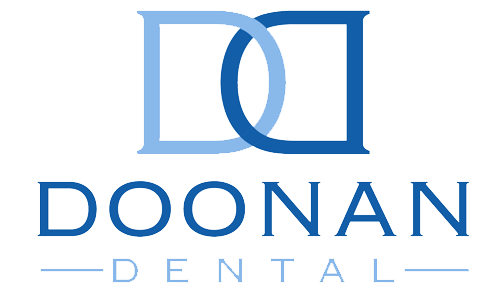We all brush our teeth daily (hopefully twice!), and that’s a great start. Keeping up with a good brushing routine is essential for maintaining a healthy smile. But that’s only the start. Regular dental checkups are the foundation of our dental health.
We know that not many people look forward to a trip to the dentist. It can even be tempting to give your next check-up a miss. After all, your teeth feel fine, so there’s nothing wrong…right? But, even if your teeth look and feel healthy, dental issues can be lurking under the surface, without any noticeable symptoms. By the time you feel any pain or discomfort, the problem has already progressed.
In this blog, we’ll explore why these checkups are so important, what to expect during your visit, and how regular dental care can save you from more serious—and costly—issues in the future.
Why Regular Dental Check-ups Matter
Did you know that around 1 in 3 people who need to see a dentist don’t go as often as they should? As a result, many of these people only book an appointment when the problem becomes unavoidable.
While, it’s easy to overlook a visit to the dentist when everything feels fine, skipping out on regular dental checkups can lead to bigger (and more costly) problems down the road.
Prevention Is Better Than Cure
The most important benefit of regular dental checkups is the ability to catch dental problems early. Your dentist can identify early signs of tooth decay, gum disease, and even oral cancer—issues that might not be noticeable to you yet but could become painful or difficult to treat if left unchecked. Routine visits also ensure that any existing dental work, like fillings or crowns, is holding up well and working properly.
Professional Cleaning
Even if you’re diligent about brushing and flossing, you can’t always reach every corner of your mouth! Plaque and tartar can build up in places where your toothbrush can’t reach.
At your checkup, your dentist will use professional tools to remove stubborn plaque and tartar, especially in hard-to-reach areas. This deep cleaning helps prevent cavities, gum disease, and bad breath, keeping your mouth healthier and fresher.
Saving on Future Treatments
Complex dental treatments are not only stressful, but can be costly too. Preventative care with dental checkups is far more affordable when compared to procedures like root canals, tooth extractions, or gum disease treatments. By catching problems early, you can avoid painful emergencies and expensive restorative treatments.
Maintaining Overall Health
There is a link between our oral health and overall well-being. Studies have found that poor oral health is connected to serious health conditions such as heart disease, diabetes, and respiratory infections. Gum disease, in particular, has been linked to increased inflammation in the body, which can contribute to these conditions. By maintaining good oral hygiene and attending regular checkups, you’re not only keeping your smile bright but also supporting your general health and well-being as well.
Personalised Advice
No two smiles are the same, and what might work for one person might not work for another. But, with regular checkups, your dentist can offer advice and guidance tailored to your unique needs. Whether it is how to make the most out of your brushing routine, advice on specific treatments or recommendations for the best dental products, your dentist will guide you in maintaining a healthy mouth based on your individual oral health challenges.

What Happens During a Dental Check-up?
Dental appointments don’t have to be scary! A dental check-up is a simple but incredibly important procedure. Here’s what you can expect during an appointment:
- A Full Picture of Your Oral Health: Your dentist starts by taking a close look at your teeth, gums, and mouth. They check for any early signs of decay, gum disease, or other dental concerns.
- Checking for More Than Just Cavities: Beyond your teeth, your dentist may also examine your jaw joints, bite alignment, and neck lymph nodes to identify any abnormalities. This can help detect conditions like TMJ (temporomandibular joint disorder) or even signs of oral cancer.
- X-Rays for a Deeper Look: Not all dental problems are visible to the naked eye. If needed, your dentist may take X-rays to check for hidden cavities, impacted teeth, or issues beneath the gum line, such as bone loss or infections.
- A Professional Cleaning: Many check-ups also include a professional cleaning, where plaque and tartar buildup are carefully removed from your teeth and gum line. Even with regular brushing and flossing, some areas are difficult to clean at home, so professional cleaning helps fill in those gaps.
- Talking About Your Oral Health: Your dentist will take the time to discuss your oral health, history, and any concerns you may have. This is your chance to ask questions about things like sensitivity, grinding, or other concerns you might have.
- Personalised Advice & Next Steps: At the end of your check-up, your dentist will share their findings and recommend any necessary treatments. They may also provide personalised advice on diet, smoking, alcohol use, and other lifestyle factors that can impact your oral health.
How Often Should You Get a Dental Checkup?
Ultimately, the goal is to create a check-up routine that helps you maintain a healthy, beautiful smile while addressing any potential issues before they worsen. How often you schedule a dental checkup is dependant on your overall oral health and risk of dental problems.
For most people, a visit at least once a year is recommended. This timeline works well for many people, but your dentist will help determine the best schedule based on your individual needs. Factors like a history of cavities, gum disease, or lifestyle habits (such as smoking or a sugary diet) may require more frequent visits.
Age-Specific Dental Care Needs
Good dental healthcare habits are essential for everyone, no matter your age. But different ages require slightly different approaches. Here is what you can consider:
Good Dental Healthcare Habits for Everyone
- Brush at least twice per day: Use fluoride toothpaste and a soft-bristled brush to clean your teeth, especially before bed.
- Eat a healthy diet: Focus on nutrient-rich foods and limit sugary snacks and drinks to help prevent tooth decay.
- Replace your toothbrush every three to four months: A worn toothbrush is less effective at cleaning your teeth, so keep it fresh for optimal results.
Children’s Check-ups
Your child’s dental journey should start early! It’s important to schedule your child’s first dental visit when their first tooth appears or by their first birthday, whichever comes first. Early visits teach good dental habits and allow the dentist to monitor the development of their teeth.
Regular check-ups every 6 to 12 months after that are essential for identifying problems early and applying preventive treatments like fluoride varnish to protect their developing teeth. The goal is to build a foundation of good oral hygiene that will last a lifetime.
Adult Dental Maintenance
As adults, our focus shifts to maintaining our natural adult teeth and preventing gum disease. Regular yearly check-ups are key to detecting issues like cavities, gum disease, and other problems that can affect oral health.
Some individuals may need more frequent visits depending on past dental history, their risk of cavities, or existing conditions that affect oral health. At this stage, it’s important to address any developing issues promptly to prevent more complex treatments down the line.
Senior Dental Care Considerations
Unfortunately, many older adults are less likely to visit their dentist regularly due to lifestyle changes or physical limitations. However, as we age, dental care becomes even more important. For seniors, common dental concerns include:
- Weakened gums and worn teeth: Aging can lead to gum recession and tooth wear, making regular visits crucial for maintaining good oral health.
- Osteoporosis: This degenerative condition can cause bone loss, which can negatively affect the teeth and jaw. Check-ups allow dentists to monitor bone health and develop strategies and treatments that help maintain the strength and stability of their teeth.
- Chronic medications: Many seniors take chronic medications that can affect oral health. Some medications cause dry mouth which reduces saliva production and can lead to an increased risk of cavities, gum disease, and difficulty swallowing. Dentists can provide guidance on managing these side effects.

Protect Your Smile, Teeth & Health With Doonan Dental
Maintaining good oral health is essential at any age, and regular dental check-ups are key to ensuring your teeth and gums stay strong and healthy. Think of it as an investment in your overall well-being!
Whether you’re bringing your little one for their first check-up or maintaining your own dental health, Doonan Dental is here to provide personalised, compassionate care for the entire family. Our expert team is dedicated to keeping your smile bright and your teeth in excellent shape. Don’t wait—schedule your next appointment today


